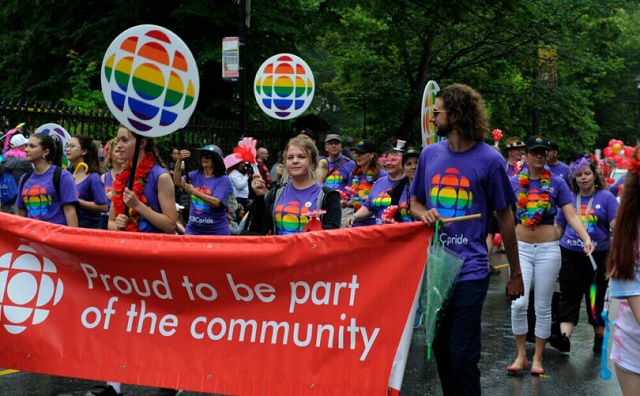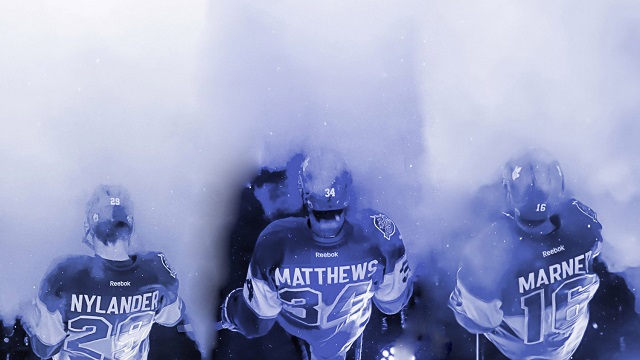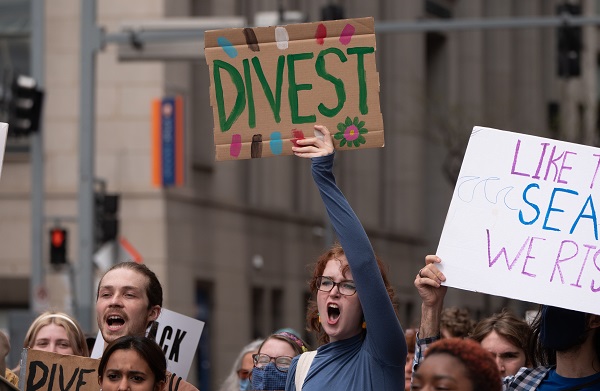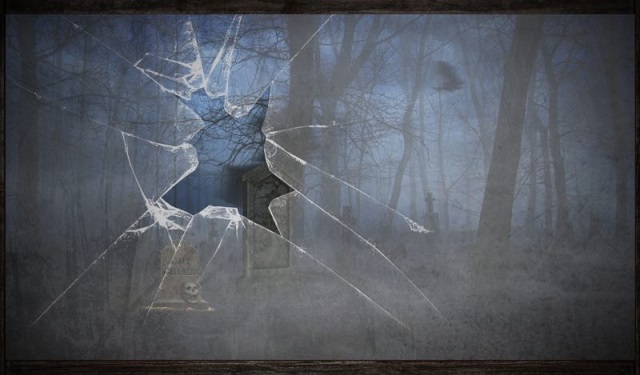Opinion
The CBC is failing by every metric. It’s promotion of ‘non-binary’ insanity shows why

From LifeSiteNews
The percentage of Canadians who watch CBC content is within the statistical margin of error. Which, incidentally, I find encouraging – the ideological drivel they serve under the banner of ‘Canadian content’ has caused Canadians to tune out.
Last May, the editorial board of the Globe and Mail took an uncharacteristically surprising position. Canada’s state broadcaster the Canadian Broadcasting Corporation (CBC), they observed, has failed by any metric:
CBC English-language television is failing badly. CBC’s third-quarter report shows its share of the national prime-time viewing audience dropped to 4.4 per cent (excluding Saturday), down sharply from 7.6 per cent in 2018, and trending below target for the year. Or, to turn that around: 95.6 per cent of TV-viewing Canadians do not tune in to CBC’s English language prime-time programming.
Supper-hour newscasts in English-speaking markets are attracting tiny audiences. In Calgary, the CBC daily broadcast reaches just 20,000 people, on average.
As English TV audiences have been shrinking, the CBC’s annual government funding has increased, up nearly 21 per cent from 2016, to $1.24-billion in 2022. (That funding is for all of CBC’s operations, not just English television).
The CBC is effectively crowding out competitors using money given to them by the government (which the government took from the taxpayers). Canadians are paying for something that, by the numbers, they do not want. We are funding the careers of delusional activists who use tax dollars to aggressively push a far-left agenda, campaigning against any Canadian conservative who dares to say something mildly centrist and for the boundary-smashing agenda of the LGBT movement.
In short, we are paying for the extravagantly expensive vanity project of a handful of out-of-touch elites who claim they are essential but cannot get a viewership for their state-funded content. The percentage of Canadians who watch CBC content is within the statistical margin of error. Which, incidentally, I find encouraging – the ideological drivel they serve under the banner of “Canadian content” has caused Canadians to tune out.
Consider, for example, a new CBC documentary – part of a series ironically titled “The Nature of Things” – titled Fluid: Life Beyond the Binary. “Non-binary Toronto comedian and actor Mae Martin says their new documentary about gender fluidity feels especially relevant as transgender rights ‘are really under attack’ in Canada and the United States,” CityNews Toronto reported. Martin wants to tackle “dangerous myths about gender identity perpetuated on both sides of the border,” such as the reality of biological sex.
The documentary is directed by a former executive producer of “Canada’s Drag Race” and takes aim at Alberta Premier Danielle Smith’s science-driven proposal to ban sex change “treatments” for minors, which Martin calls “disheartening”: “It’s so disheartening. To feel like you have no recourse and no support and you’re being demonized, particularly when you’re young and going to school, I think that’s pretty devastating.” To be clear, this is a government-funded LGBT activist cosplaying as a comedian getting paid by the state to attack an elected premier for advocating a policy supported by a solid majority of Canadians.
Martin, who is a trans-identifying female, had a double mastectomy in 2021, went on testosterone afterwards, and is an advocate for “sex change” surgeries. She did not explain why, if she is “non-binary,” she needs to use the “they” pronoun – or why she needed surgeries or drugs at all. She did, however, explain how female lions who develop masculine traits when taking care of the pride is an example of evidence for the transgender movement’s premises. If you believe that, I’ve got a pretty good idea of who you’re voting for.
Martin enthused that it is very exciting for “a revered institution” like the CBC to tackle gender fluidity, and said she hopes Fluid will create “more empathy and understanding” among Canadians. Unfortunately for Martin but fortunately for the Canadian public, almost nobody watches this stuff. We do, however, have yet another example of why a Conservative government needs to make defunding the CBC a top priority. The CBC is no longer revered; it is barely relevant. We shouldn’t have to pay for a handful of activists to talk to themselves and their delusional clique.
Bruce Dowbiggin
In Toronto The Leafs Always Fall In Spring: 2024 Edition

Who knew when we tuned in Saturday night to Hockey Night In Canada that we would be witnessing playoff history. Nay, not just playoff history but hockey history. According to what we saw and heard on HNIC just ONE TEAM played on Saturday. And they lost. It goes without saying that the team was HNIC’s beloved Toronto Maple Leafs.
Those of us who’d stuck with the telecast all evening could’ve sworn there was another team on the ice in black and gold. Rumour has it they were the Boston Bruins, but don’t quote us on that. Also, take it as a rumour that Boston’s 3-1 win gave them a 3-1 lead in games over Toronto heading back to Boston for what most expect will be the coup de grace for the blue and white. Again.
But when time came to discuss the game afterward the Toronto-based panel told us that the Leafs had beaten themselves. Yes, in some hockey version of metaphysics Toronto had transcended the third dimension. The Bruins were like The Fugitive, lurking far out of sight. Brad Marchand had had nothing to do with breaking up Toronto’s neutral-zone speed nor Charlie McAvoy clearing the front of their net. Jeremy Swayman, who he?

Instead the talking heads dissected the loss in shades of blue.
For those who were washing their hair or another vital task on Saturday, the Leafs had more story lines than a season of Curb Your Enthusiasm (insert your joke here), They finally got their migraine-afflicted star William Nylander back in the fold before a delirious Scotiabank crowd who’d probably paid about a $1000 a ticket to attend. But their star sniper Auston Matthews (allegedly) had food poisoning or a gall stone or a tee time next week back home in Scottsdale. Hard to say.
There was also a goaltending controversy, a Mitch Marner controversy and a Keith Pelley controversy (more on MLSE’s new CEO in a moment). And the, you know, 1967 thing. Despite the hysteria of their long-suffering fans at puck drop, postgame analysts hinted the Leafs seemed to be disinterested. Or, to those who actually watched the game, they were schooled by a better Boston team.
By the middle of the second period, despond and a 3-0 deficit had settled on the Leafs. Despite being the ONLY TEAM on the ice their well-compensated stars were bitching at each other on the bench. While Matthews looked glumly at his pals, Marner had a hissy fit throwing his gloves to the floor. Nylander lip-synched a rebuke to Marner along the lines of Grow up, this ain’t junior hockey. Did we say the crowd booed them off the ice after the second period? Yeah, that too.

Which led mild-mannered Kelly Hrudey to scold Marner for a bush-league behaviour in the break. Remember, Hrudey’s the nice guy on the HNIC panel. Where others see an alligator chomping on their leg Kelly sees a chance to get up-close with nature. So the rebuke for Marner was incendiary. By the time they dropped the pick for the third period you’d have thought Bob Cole wasn’t the only person to pass away this week. Gloom.
Making matters worse, Matthews was nowhere to be found. (According coach Keefe, the doctors had pulled him from the game. Whatever.) When the contest ended with a Toronto loss, the postgame chatter was once more obsessed with Toronto’s failings, as if another team were not having its way on the ice. Where was the effort? Where was the intensity promised when Leafs management spread dollars like Easter candy among its Core Four?
Kevin Bieksa, typically the most salty one on the panel, reminded everyone there was a Game 5 Monday and that 3-1 leads have been overcome. But with Toronto’s success in comebacks being nil he sounded like a guy trying to sell you a penny mining stock.
The dressing-room afterward was mint. “You know what, that’s just the way we are,” Nylander said. “I mean we expect a lot from each other, and we love each other.”
“I don’t think there’s any (frustration),” Marner added unconvincingly. “We’re grown men. We were talking about plays out there that we just want to make sure we’re all 100 percent on and know what we’re doing… We’re not yelling at each other because we hate each other.”
Chris Johnston of The Athletic called it the end of the Maple Leafs as we know them. “They’re making more mistakes at five-on-five, they’re soundly losing the special-teams battle, and they’ve transformed from being one of the NHL’s best offensive teams in the regular season to one that can’t score more than two goals per night in the playoffs. Wash, rinse, repeat.”
Coach Sheldon Keefe, whose shelf life has about 60 minutes left, was enigmatic in the face of cruel destiny. “You can question a lot of things; you can’t question the effort,” he said.
He’s right about one thing. When this first-round ends in ignominy there will be plenty of questions from Pelley, newly installed at the top of the MLSE pyramid. Such as, why should I keep this management team that teases Waygu beef in-season but delivers ground chuck in the playoffs? It’s long been said that the league the Leafs have been built for doesn’t exist in the postseason. So why keep pretending it does?
For those not in the know, Pelley has spent the last few years dealing with the Saudi’s LIV golf enterprise in his role as CEO of what used to be known as the European Tour. (Insert your barbarism reference) So he’s used to dealing with nasty situations.
Maybe his first act on the Leafs file is reminding everyone that two teams play each other in the playoffs, and it might be a good idea to learn from what the winners are doing.
Bruce Dowbiggin @dowbboy is the editor of Not The Public Broadcaster A two-time winner of the Gemini Award as Canada’s top television sports broadcaster, he’s a regular contributor to Sirius XM Canada Talks Ch. 167. Now for pre-order, new from the team of Evan & Bruce Dowbiggin . Deal With It: The Trades That Stunned The NHL & Changed Hockey. From Espo to Boston in 1967 to Gretz in L.A. in 1988 to Patrick Roy leaving Montreal in 1995, the stories behind the story. Launching in paperback and Kindle on #Amazon this week. Destined to be a hockey best seller. https://www.amazon.ca/Deal-Trades-Stunned-Changed-Hockey-ebook/dp/B0D236NB35/
Fraser Institute
Federal government’s fiscal record—one for the history books

From the Fraser Institute
By Jake Fuss and Grady Munro
Per-person federal spending is expected to equal $11,901 this year. To put this into perspective, this is significantly more than Ottawa spent during the global financial crisis in 2008 or either world war.
The Trudeau government tabled its 2024 budget earlier this month and the contents of the fiscal plan laid bare the alarming state of federal finances. Both spending and debt per person are at or near record highs and prospects for the future don’t appear any brighter.
In the budget, the Trudeau government outlined plans for federal finances over the next five years. Annual program spending (total spending minus debt interest costs) will reach a projected $483. billion in 2024/25, $498.7 billion in 2025/26, and continue growing in the years following. By 2028/29 the government plans to spend $542.0 billion on programs—an 18.4 per cent increase from current levels.
This is not a new or surprising development for federal finances. Since taking office in 2015, the Trudeau government has shown a proclivity to spend at nearly every turn. Prime Minister Trudeau has already recorded the five highest levels of federal program spending per person (adjusted for inflation) in Canadian history from 2018 to 2022. Projections for spending in the 2024 budget assert the prime minister is now on track to have the eight highest years of per-person spending on record by the end of the 2025/26 fiscal year.
Per-person federal spending is expected to equal $11,901 this year. To put this into perspective, this is significantly more than Ottawa spent during the global financial crisis in 2008 or either world war. It’s also about 28.0 per cent higher than the full final year of Stephen Harper’s time as prime minister, meaning the size of the federal government has expanded by more than one quarter in a decade.
The government has chosen to borrow substantial sums of money to fund a lot of this marked growth in spending. Federal debt under the Trudeau government has risen before, during and after COVID regardless of whether the economy is performing relatively well or comparatively poor. Between 2015 and 2024, Ottawa is expected to run 10 consecutive deficits, with total gross debt set to reach $2.1 trillion within the next 12 months.
The scale of recent debt accumulation is eye-popping even after accounting for a growing population and the relatively high inflation of the past two years. By the end of the current fiscal year, each Canadian will be burdened with $12,769 more in total federal debt (adjusted for inflation) than they were in 2014/15.
You can attribute some of this increase in borrowing to the effects of COVID, but debt had already grown by $2,954 per person from 2014 to 2019—before the pandemic. Moreover, budget estimates show gross debt per person (adjusted for inflation) is expected to rise by more than $2,500 by 2028/29.
As with spending, the Trudeau government is on track to record the six highest years of federal debt per-person (adjusted for inflation) in Canadian history between 2020/21 and the end of its term next autumn. Why should Canadians care about this record debt?
Simply put, rising debt leads to higher interest payments that current and future generations of taxpayers must pay—leaving less money for important priorities such as health care and social services. Moreover, all this spending and debt hasn’t helped improve living standards for Canadians. Canada’s GDP per person—a broad measure of incomes—was lower at the end of 2023 than it was nearly a decade ago in 2014.
The Trudeau government’s track record with federal finances is one for the history books. Ottawa’s spending continues to be at near-record levels and Canadians have never been burdened with more debt. Those aren’t the type of records we should strive to achieve.
Authors:
-

 Energy2 days ago
Energy2 days agoAnti-LNG activists have decided that they now actually care for LNG investors after years of calling to divest
-

 Censorship Industrial Complex2 days ago
Censorship Industrial Complex2 days agoDesperate Liberals move to stop MPs from calling Trudeau ‘corrupt’
-

 Brownstone Institute2 days ago
Brownstone Institute2 days agoIs the Overton Window Real, Imagined, or Constructed?
-

 International2 days ago
International2 days agoUN attacks stay-at-home motherhood as ‘gender inequality’
-

 conflict2 days ago
conflict2 days agoCol. Douglas Macgregor torches Trump over support for bill funding wars in Ukraine and Israel
-

 Frontier Centre for Public Policy1 day ago
Frontier Centre for Public Policy1 day agoThe end of Canada: The shift from democracy to totalitarian behavior in the ‘pandemic era’
-

 Energy1 day ago
Energy1 day agoReflections on Earth Day
-

 Great Reset2 days ago
Great Reset2 days agoTerrorists Welcome: Chronic counterterrorism lapses at the border demand investigation






